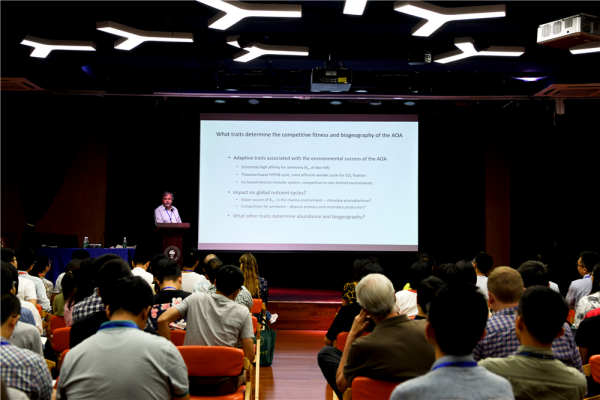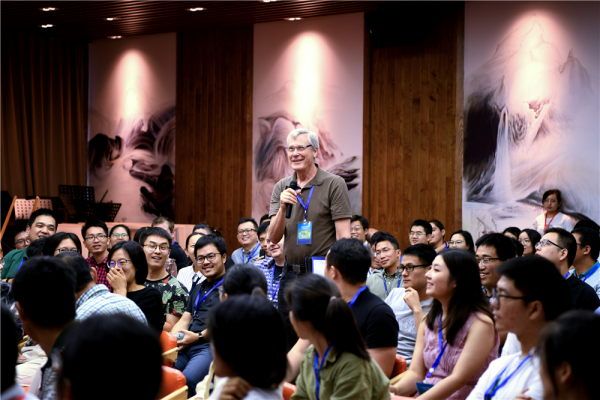Southern University of Science and Technology (SUSTech) recently welcomed National Academy of Engineering (NAE) fellow David A. Stahl to give the 239th lecture in the SUSTech Lecture Series. Professor Stahl gave a lecture at SUSTech as part of the International Workshop on Geo-Omics and Archaea (IWGOA), entitled “Archaeal Controls of the Nitrogen Cycle.” His lecture was hosted by Ocean Science and Engineering (OSE) Professor Zhang Chuanlun.
David Allan Stahl is an honorary Professor of Civil and Environmental Engineering at the University of Washington. His major research fields include microbial ecology, applied microbial ecology, microbial evolution and systematics. He has published more than 290 articles and government reports that have been cited nearly sixty thousand times, with an h-index of 102.

At the lecture, Professor Stahl first introduced the contributions made by scientists like Carl Woese to enhance our understanding of Geo-omics of Archaea. He went on to discuss how the discovery of archaea influenced scientists to make more scientifically accurate biological classifications. There are still limitations in the research of microbial species diversity and there needs to be further promotion of the work of microbial isolation and cultivation.
Professor Stahl revealed the importance of ammonia metabolism in the growth of archaea by introducing the metabolism of nitrogen in archaea. Using the Ammonia Oxidation Archaea (AOA) Gene as an entry point, he described how this gene helps archaea survive in extreme environments and the effects on the global nitrogen cycle. Finally, he showed the findings of sequencing studies and introduced the differences in the AOA genes of archaea in different regions. Professor Stahl said that the application of genome sequencing technology will greatly help the separation research and interpretation of archaea.

This lecture brought cutting-edge research in archaea for teachers and students, stimulating interest in marine archaea and science.
Proofread ByXia Yingying
Photo ByDepartment of Ocean Science and Engineering